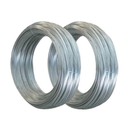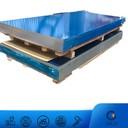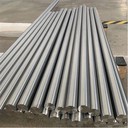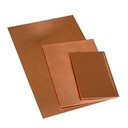Contact Us
- Xinwu District, Wuxi City, Jiangsu Province
- info@szdepu-metals.com
- +86 134 24179016
Copper Products
SZ DEPU METALS: Your Professional Copper Products Supplier
Shenzhen Depu Technology Co., Ltd. located in Xi'an High- tech Zone, Shaanxi, China, has been in business for over 30 years and is a professional manufacturer integrating R&D, production, sales and service. We are the leading provider of stainless steel sheets, coils, strips, tubes, bars, and custom stainless steel products and also specialized in the production and sales of galvanized wire, galvanized pipe, galvanized color-coated corrugated sheet and other products, which are widely used in construction, transportation, chemical industry and light industry.
Why Choose Us?
Extensive Inventory
With a vast stock holding of galvanized wire, galvanized pipe, aluminum products, stainless steel sheets, coils, strips, tubes, and bars, we have a wide range of products readily available to meet your immediate needs. Our comprehensive inventory ensures quick access to the materials you need.
High Quality
We only use the finest raw materials and have a rigorous quality control process in place. The products can meet the national standards, American standards, European standards and other foreign standards to meet the special technical needs of different customers. We've been awarded third-party certifications including ISO 9001-2015 and EN-1090-2. These absolutely verify our technical expertise and confirm that we meet the standards set by regulatory authorities.
Professional Team
We have more than 300 technical personnel, and the design engineers have more than 25 years of experience in designing and building molds that offer innovative solutions to complex design challenges. Our state-of-the-art equipment and skilled technicians offer laser cutting, plasma cutting, waterjet cutting and more, guaranteeing precise dimensions, clean finishes and no additional processing required.
Superior Service and Logistics
Our customer team is highly skilled, motivated and always ready. No matter you are following up on an order, looking for advice or seeking a bespoke quotation, our team is here to help. We partner with reliable logistics providers to offer secure and timely delivery. Our team handles all customs clearance, documentation, and transportation complexities to ensure your stainless steel arrives safely and efficiently.
 4x8 Copper Sheet For Sale
4x8 Copper Sheet For SaleDelivery date: 7-20 business days . contact us: info@szdepu-metals.com . Sample: free
 Bare Copper Wire
Bare Copper WireDelivery date: 7-20 business days . contact us: info@szdepu-metals.com . Sample: free
 6 Awg Copper Wire
6 Awg Copper WireDelivery date: 7-20 business days . contact us: info@szdepu-metals.com . Sample: free
 Copper Foil
Copper FoilDelivery date: 7-20 business days. Contact us: info@szdepu-metals.com. Free samples: available.
 15mm Copper Pipe
15mm Copper PipeDelivery date: 7-20 business days. Contact us: info@szdepu-metals.com. Free samples: available.
 Copper Wire Scrap 99.99
Copper Wire Scrap 99.99Delivery date: 7-20 business days . contact us: info@szdepu-metals.com .
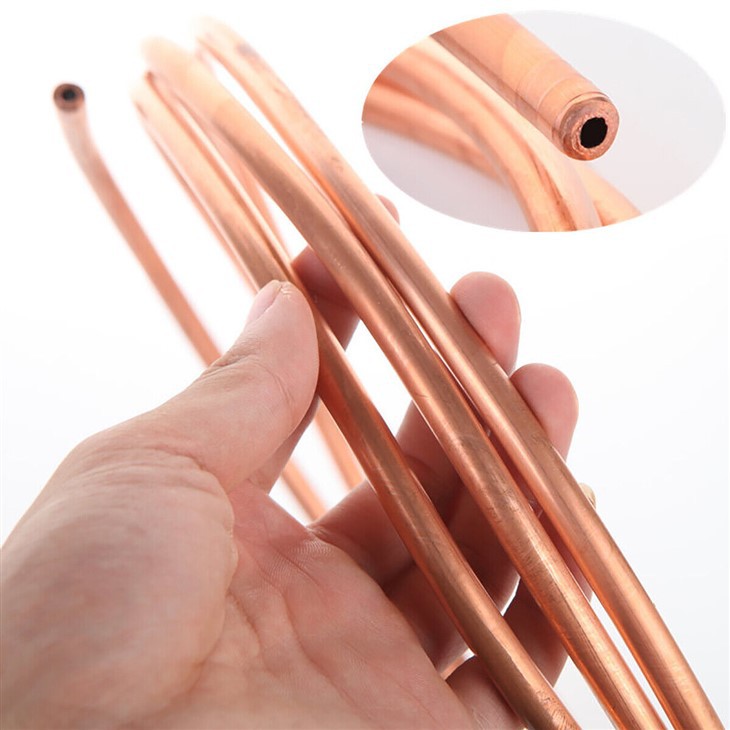
Copper products refer to various items made using copper or copper alloys. It is widely used in various fields due to its excellent electrical conductivity, thermal conductivity, ductility, corrosion resistance and wear resistance. Our copper products includes copper foil, copper pipe, copper wire scrap, copper strip.
What Areas are Copper Coils Widely Used?
HVAC (Heating, Ventilation, and Air Conditioning)
Copper coils are a cornerstone of the HVAC industry, contributing to the efficient cooling and heating of spaces. Air conditioning units and heat pumps utilize copper coils to transfer heat between indoor and outdoor environments, ensuring optimal temperature regulation. Copper's excellent heat transfer properties enhance the overall energy efficiency of HVAC systems.
Refrigeration
In refrigeration systems, copper coils serve as evaporators and condensers, facilitating the circulation of refrigerants to achieve cooling. The exceptional thermal conductivity of copper allows for rapid heat exchange, resulting in efficient cooling cycles. Refrigeration systems found in households, commercial settings, and industrial applications rely on copper coils to maintain low temperatures.
Automotive
Copper coils are employed in various automotive systems, including ignition coils and fuel injectors. Ignition coils, for example, convert the vehicle's battery voltage into the high voltage needed to ignite the fuel-air mixture in the engine cylinders. Copper's conductive properties contribute to reliable and efficient ignition processes.
Industrial Processe
Copper coils are used in a variety of industrial processes, such as metal fabrication, chemical processing, and oil and gas extraction. They are used for heating and cooling applications, and are often preferred due to their high thermal conductivity and resistance to corrosion.
Renewable Energy
Copper coils are vital components in renewable energy systems such as solar panels and wind turbines. In photovoltaic panels, copper is used in the conductive wiring that transports generated electricity. Wind turbines employ copper coils in generators and transformers to convert mechanical energy into electrical energy.
Aerospace
The aerospace industry utilizes copper coils in avionics, communication systems, and navigation equipment. Copper's ability to handle high frequencies and transmit signals with minimal loss makes it invaluable in maintaining reliable communication and navigation in aircraft.
Medical Devices
Medical devices, ranging from MRI machines to pacemakers, rely on copper coils for various functions. In MRI machines, copper coils are crucial for generating and detecting radiofrequency signals used in medical imaging. Copper's biocompatibility and durability make it suitable for implants like pacemakers and defibrillators.
Telecommunications
Copper coils are used in telecommunications equipment such as telephone lines, fiber optic cables, and networking devices. They help ensure efficient data transmission and communication signals, allowing for seamless connectivity in modern information systems.
The Benefits of Copper Coils
Excellent electrical conductivityCopper has excellent electrical conductivity and is currently one of the most common metals used to transmit electrical energy and signals. In contrast, copper conducts electricity 8 times higher than iron and 3 times higher than aluminum, so copper coils are widely used in the electronics industry.
Good thermal conductivity: Similar to its excellent electrical conductivity, copper also has excellent thermal conductivity. Copper is one of the metals with the best thermal conductivity, which means that copper coils can transfer heat quickly and stably, so it is widely used in motors, transformers, wire insulation and other fields.
Good corrosion resistance: Copper coils can resist the corrosion of air, water and many non-oxidizing acids to a certain extent, so they can be used for a long time.
Good processing performance: Copper coils are easy to process during the production process, and perform well in welding, cutting, forming, stretching, riveting, etc. This also means that copper coils can be customized into products of many shapes and sizes.
Stable thermal expansion coefficient: Due to the small thermal expansion coefficient of copper, copper coils have good thermal stability, that is, they can maintain the same shape and size even at high temperatures.
Top 8 Benefits of Using Copper Wires in Electric Circuits
These wires are resistant to heat which eradicates issues related to overloading. The property makes it an ideal choice for being used in machinery with heavy electrical circuits.
The wires made from copper are resistant to corrosion. Although at times, there might appear some patina due to oxidation, it will not have any effect on its functionality.
Copper being a ductile metal, can be easily used for producing wires of any thickness. Even wires that are thinner than the strands of hair can be formed with it. Another remarkable quality about the wires is that they can be easily twisted or bent according to the need, without being bothered about breakage. These qualities make it extremely versatile. It is the reason that you will see thick copper wires used in electrical cables while thinner wires are being used in headphones.
Safety is another remarkable strength of copper wires. It doesn’t melt easily, making it safe. In case of an electrical surge, fluctuation, or overload the wires will not melt away. It reduces the probability of fire break. This feature gives it an edge over other wires present in the market.
Most of the wires tend to get loose over a period of time, hence it is important to check and fix them on regular basis. Not doing it may result in dare consequences or accidents. Here, wires made from copper comes up as a big relief as it doesn’t get loose, giving you complete peace of mind.
The copper wires are easy to recycle; it is a major advantage as everybody is very much concerned about saving the environment. All products that are manufactured using copper or have the metal in them can be recycled by re-smelting. It makes it a reusable, renewable, and economically viable resource.
Although, there are lots of metals out there copper beats them to hand down when it comes to choosing the best electric conductor. It comes up as the best conductor of electricity. It gives more power compared to other options available in the market. It gets the job done more effectively and efficiently.
The electricians and wiremen prefer working with copper wiring as it is easy to work around it. They can easily strip it, reuse it, pull it through narrow spots without being bothered about oxides formed on the surface of the metal. It is the reason they come up as a top choice for commercial and residential projects.
Power Transmission
Copper wires form the backbone of power grids, efficiently transmitting electricity from power plants to homes, businesses, and industries. Copper’s low electrical resistance ensures minimal energy loss during transmission, contributing to overall system efficiency and cost-effectiveness.
Communications and Networking
In the realm of communications and networking, copper wire serves as the foundation for telephone lines, data cables, and Ethernet connections. Its ability to support high-speed data transmission makes it ideal for modern communication infrastructure, enabling seamless transfer of information and connectivity.
Electrical Wiring
Copper is a popular choice for electrical wiring due to its excellent electrical conductivity, malleability, and corrosion resistance. These properties make it well-suited for a variety of electrical applications, including power transmission, electronics, and construction.
Electric Motors
Copper wire is the heart of electric motors, providing the conductive pathways for electricity to generate rotational force. Its durability and ability to withstand high currents make it essential for various motor applications, ranging from industrial machinery to household appliances.
Lighting
Copper wire plays a fundamental role in lighting systems, delivering electricity to light bulbs, lamps, and other lighting fixtures. Its flexibility and ability to be shaped into various forms make it suitable for a wide range of lighting applications, from architectural lighting to residential and commercial lighting.
Heating
Copper wire is also widely used in electric heating systems, including baseboard heaters, underfloor heating, and heat pumps. Its ability to efficiently convert electricity into heat makes it a preferred choice for energy-efficient and comfortable heating solutions.
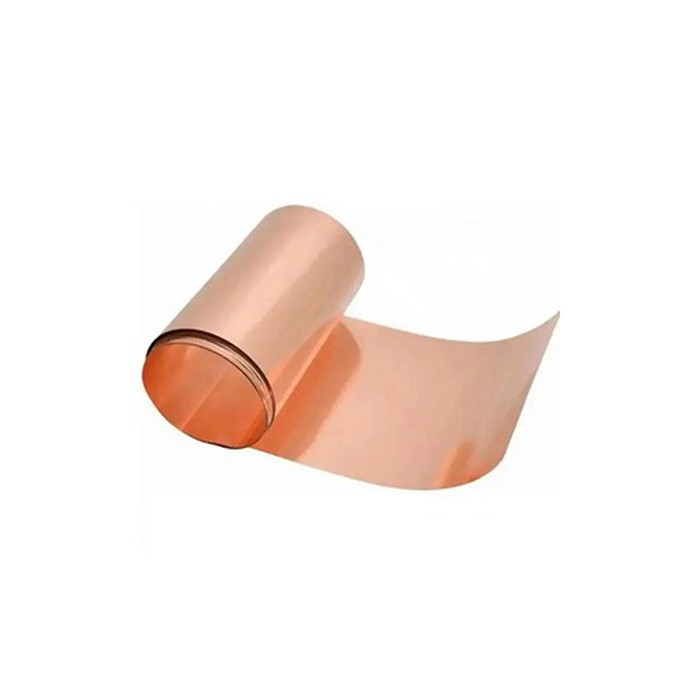
Copper Wire vs. Aluminum Wire
Resistance
Aluminium cable is more resistant and can carry less current (by roughly 40%) than a comparable copper conductor. Aluminium has a higher electrical resistance than copper. This low resistance causes copper wires to heat up less, lose a lower amount of energy, and undergo a lower voltage fall.
Copper Wire vs. Aluminum Wire in AC
Since copper is a more effective conductor and has lower resistance, it is usually applied in AC systems. Copper can readily handle AC currents due to its low resistance and low heat generation. The use of aluminium in AC systems is possible. Still, because of its greater resistance and the skin effect, it may result in higher energy decline, heating up, and potential performance issues. Aluminium wires in AC systems often have to be wider in diameter to make up for these shortcomings, which can address the higher resistance.
Ampacity
In comparison to aluminium wires of the same size, copper wires often have a greater ampacity. Heavy-duty appliances and circuits require greater ampacity applications where copper is commonly used. To attain an equivalent current-carrying capacity as copper, aluminium wires used in high-amperage applications need to be greater in diameter or size. This may increase the need for more space and raise implementation costs.
Advantages of Copper Pipe
Durability
Copper pipes and tubes are known for their durability. Copper can withstand extreme temperature changes, high-pressure environments, and corrosive chemicals, which makes copper pipes ideal in industrial environments. Copper piping systems are less likely to crack or leak, which reduces the likelihood of downtime in your operations. Additionally, copper pipes and tubes do not contribute to the presence of harmful bacteria, making them a safer option to use in industrial settings.
Versatility
Due to their versatility, copper pipes and tubes are a popular material of choice for many industrial applications. Copper can be formed into various shapes and sizes, which makes them perfect for customized industrial installations. Additionally, copper pipes are easy to join and can be altered when needed, making installation and repair work easy and hassle-free.
Sustainability
Copper pipes and tubes are a sustainable option for industrial applications. Not only is copper recyclable, but it is also a long-lasting material, which reduces the need for constant replacement and repair. By using copper pipes and tubes in your industrial operations, you are contributing to environmental sustainability.
Cost-effective
Copper piping and tubing may seem expensive, but it pays off in the long run. Copper is a low-maintenance material that requires minimal upkeep, which reduces the likelihood of unexpected repair costs. Additionally, a copper piping system has a long lifespan, which means you won’t have to replace it frequently, further reducing the cost of maintenance and operation.
Corrosion Resistance
Copper pipes and tubes resist corrosion, which greatly benefits industrial operations. Corrosion can weaken pipes, leading to leaks, equipment damage, and even structure collapse. With copper piping, these problems can be avoided as it is a highly resistant material that can withstand harsh conditions.
How to Choose the Best Copper Pipe for Your Plumbing Needs
Understanding Pipe Sizes
Pipe sizes are typically measured based on the internal diameter (ID) or the nominal pipe size (NPS), which corresponds to the pipe's inner diameter. However, for copper pipes, the size is related to the actual inside diameter. Nominal sizes range from 1/8 inch to 12 inches and beyond.
Picking the Appropriate Pipe Size
The size of the copper pipe required depends on the volume and type of fluid flowing through it, pressure of the fluid, and the pipe's purpose. For residential water supply, 1/2 inch or 3/4 inch pipes are frequently used, but for drainage, larger pipes, usually from 1.5 to 4 inches are employed.
The Impact of Pipe Size on Pressure and Flow Rate
Incorrect pipe sizes could lead to issues such as low water pressure or the inability of the system to carry away waste effectively. Regardless, the larger the diameter of the copper pipe, the more water it can carry, but at a reduced pressure.
Adhering to Plumbing Codes
Plumbing codes exist to ensure that plumbing installations are safe and effective. Therefore, when choosing the size of copper pipes for your home, it's vital to comply with local plumbing codes.
Consulting with a Professional Plumber
Though it's possible to determine and install your copper pipes, some cases may necessitate the hiring of a professional plumber. These situations include complex installations, unfamiliarity with plumbing basics, or dealing with local codes beyond your scope of knowledge.
Our Factory

Companies We Have As Clients
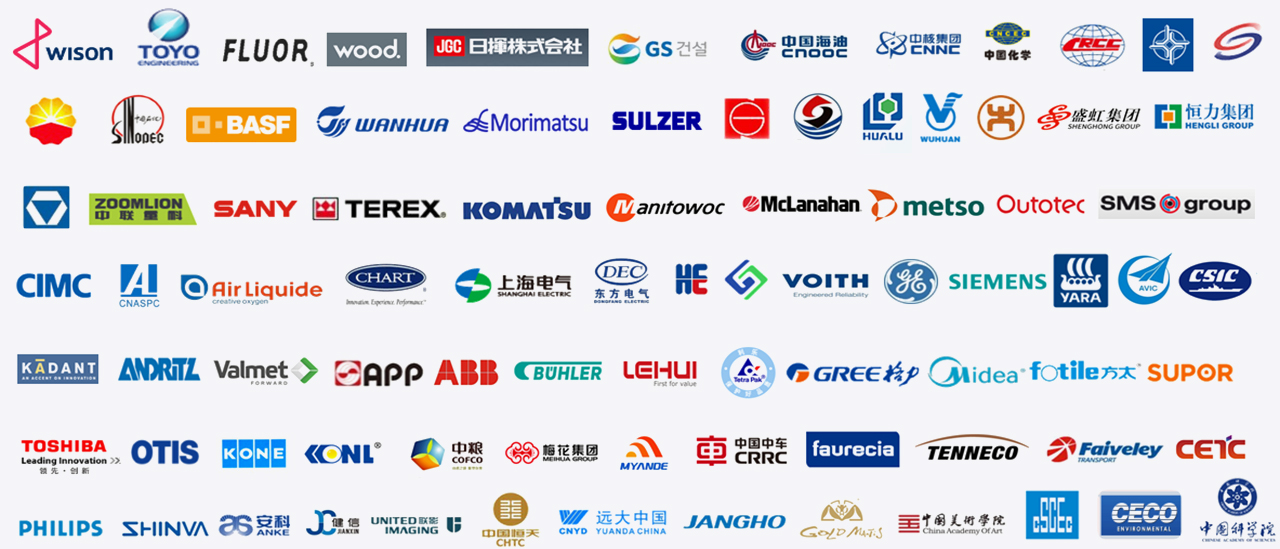
Our Certifications

Ultimate Guide
As one of the leading copper products manufacturers and suppliers in China, we warmly welcome you to buy or wholesale cheap copper products in stock here from our factory. All customized products are with high quality and competitive price. For free sample, contact us now.

